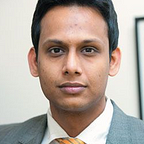who takes the blame for a forged tap order ?
[caption id=”” align=”alignright” width=”300" caption=”Image via Wikipedia”]
[/caption]
The Amar Singh Judgment where Amar Singh, the former BSP politician complained to the Supreme Court that his phone was illegally tapped, presents one of the most significant holdings on telecommunications privacy since the PUCL Judgment. The decision is the outcome of a Article 32 petition before the Supreme Court of India, where he alleged that due to warrantless eavesdropping of his phone, his right to privacy was illegally curtailed.
What makes this case rather interesting is that the telecommunication provider on whose network Amar Singh had his mobile connection, submitted a copy of the tap order and this tap order was subsequently denied to have been issued by Principal Secretary, Ministry of Home Affairs (the Authority possessing the power to pass such orders). Hence, it came to be borne that the tapping was carried on the basis of a forged tap order. The following excerpt from the case sets up the entire controversy:
2. The Petitioner’s case is that a request dated 22nd October, 2005 was issued from the office of the Joint Commissioner of Police (Crime), New Delhi to the Nodal Officer, Reliance Infocom Ltd., Delhi, for the interception of all the calls made from or to the telephone numbers of the Petitioner. This request was subsequently followed by an order dated 9th November, 2005, from the Principal Secretary (Home), Government of National Capital Territory of Delhi, authorizing the said request. The case of Respondent №8 is that the said orders were acted upon by it, and the Petitioner’s conversations were intercepted. However, the Union of India, and the National Capital Territory of Delhi denied the allegations. They submitted that said orders annexed to the petition, purporting to be issued by the Joint Commissioner of Police, (Crime), New Delhi, and the Principal Secretary (Home), Government of National Capital Territory of Delhi are fabricated with forged signatures and they are not genuine. Alleging forgery, a criminal case in that respect had already been initiated.
Now beyond the nuanced legal issues, this case concerns the fixation of responsibility for tap orders. Our mobile phones operate on the backbone of a telecommunication service provider who has the ability but not the authority to tap our phones. The authority for passing such tap orders vests exclusively with certain functionaries of the government as per the guidelines of the Hon’ble Supreme Court in the PUCL Judgment and the rules subsequently formed under the Indian Telegraph Act, 1885.
To deny responsibility for the forged tap-order the principal ground of defense taken by the Authorities seems to have been that the tap-order contained several defects and spelling errors and on its very face appeared forged. Hence, by taking such a defense the Authorities seemed to have tried to shift responsibility to the service provider for taping conversations under a visibly flawed and thus forged tap-order. This line of argument seems to have found favor with the Court, as it stated that:
38. Considering the materials on record, this Court is of the opinion that it is no doubt true that the service provider has to act on an urgent basis and has to act in public interest. But in a given case, like the present one, where the impugned communication dated 9.11.2005 is full of gross mistakes, the service provider while immediately acting upon the same, should simultaneously verify the authenticity of the same from the author of the document. This Court is of the opinion that the service provider has to act as a responsible agency and cannot act on any communication. Sanctity and regularity in official communication in such matters must be maintained especially when the service provider is taking the serious step of intercepting the telephone conversation of a person and by doing so is invading the privacy right of the person concerned and which is a fundamental right protected under the Constitution, as has been held by this Court.
39. Therefore, while there is urgent necessity on the part of the service provider to act on a communication, at the same time, the Respondent №8 is equally duty bound to immediately verify the authenticity of such communication if on a reasonable reading of the same, it appears to any person, acting bona fide, that such communication, with innumerable mistakes, falls clearly short of the tenor of a genuine official communication. Therefore, the explanation of the service provider is not acceptable to this Court. If the service provider could have shown, which it has not done in the present case, that it had tried to ascertain from the author of the communication, its genuineness, but had not received any response or that the authority had accepted the communication as genuine, the service provider’s duty would have been over. But the mere stand that there is no provision under the rule to do so is a lame excuse, especially having regard to the public element involved in the working of the service provider and the consequential effect it has on the fundamental right of the person concerned.
This may seem unfair to many, as Telecom Service Providers may receive orders full of clerical mistakes at a regular basis. Recent reports suggest that 1 lakh (10 million) tap orders are issued every year in India with each telecom operator receiving an average of 30,000 tap orders a year. Sifting through them may seem like a daunting task, and certainly in the absence of a procedure to verify tap-orders Service Providers will be put in a difficult position to maintain secrecy of the tap order as well as to verify its authenticity. Sensing this difficulty the Court suggested that the Central Government frame statutory guidelines to prevent unauthorized interception of telephone conversations. It is interesting to note that certain provisions of the Privacy Bill, 2011 do contain such procedures.
Related articles
